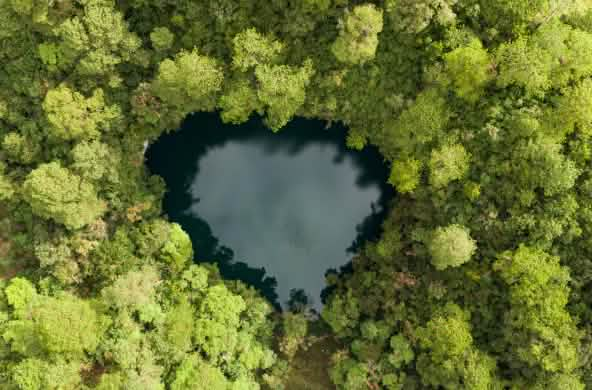Completed campaign
Gucci, Hermès, Cartier & Co.: Stop the snake slaughter in Indonesia!
New terrifying footage reveals the cruel methods for producing leather in Indonesia. For days, lizards and snakes are kept tied up in plastic bags, until the animals are finally skinned – often while they are still alive. Primarily, reptile leather is imported by luxury fashion labels such as Gucci, Cartier, Hermès and Bally and processed further into watch bands, shoes and bags.Rainforest Rescue urges the companies to stop their commercial trading with these suppliers immediately.
Switzerland is the world’s largest trader in products manufactured from threatened species. Every year, the Swiss watchmaking industry alone imports more than one million leather watch bands made from the skins of endangered reptiles.
Apparently, neither the industry nor its exclusive clientele care about the incredible torture the animals have to endure just to end up as fashionable accessories. A video clip aired on Swiss news broadcast “Rundschau” (link) reveals how Water monitors are tied together and kept in plastic bags for days, until they are killed by a hammer blow to the head. However, a large number of these animals survive their severe injuries – and are skinned alive as a consequence. Snakes get an additional “water treatment” prior to flaying: A hook through the upper jaw locks them into position, and a hose is inserted that fills their bodies with water. This procedure is employed in order to stretch their bodies so straight cuts can be made before the skinning. Unequivocally, the struggling movements of the animals prove that they are alive all along.
In the light of this footage, it is shocking that most of the companies in dispute have not responded in any appropriate way. For example, in the interview with the chairman of the Federation of the Swiss Watch Industry, Jean-Daniel Pasche simply declares that animal welfare was an issue not yet discussed by the management bodies of the companies – and thus, he himself could not make a statement.
Nevertheless, the issue of animal protection is especially pressing. The excessive hunt for reptiles has already reached an alarming level: By now, the number of animals has decreased to such an extent that the “lizard hunters” catch no more than ten specimens per night. After all, Indonesia alone exports about 400.000 skins of Water monitors. The governments of the individual countries themselves allocate the catch quota – even if they lack scientific statistics concerning the species’ population. As an example, the Asiatic reticulated python has an annual bag limit of 157.000 specimens in Indonesia. Furthermore, NGO TRAFFIC, the wildlife trade monitoring network, has proof that the exemption limits for export are exceeded constantly. Indonesian companies smuggle untanned hides into Malaysia, for example. There, grants of export licences are bought – and charged to the Malaysian catch quota.
The reference sources have to be classified as doubtful anyway. In Switzerland, the trading in protected species and animals is subject to licencing as well.
Even there, some of the corresponding papers for reticulated pythons are marked with the identification code for “breeding business” – although these breeding farms do not exist in Indonesia. Addressed with this fact, the Swiss federal office in charge promises to forward this piece of information to the central office to issue export licences, CITES (the Convention on International Trade in Endangered Species of Wild Fauna and Flora).
So far, Swiss watch manufacturer Swatch is the only enterprise to respond to the news report immediately. CEO Nick Hayek, Jr. radically deletes products with dubious background from the company’s range – even though watch bands made from alligator leather provided by Northamerican breeding farms are set to remain on offer. However, these suppliers will be thoroughly checked by Swatch as well.
Gucci has its own tannery for the imported hides, but as of yet has not passed a comment. Hermès and Cartier simply point out that their commercial trading businesses abide by current legislation. Bally on the other hand insists on their python hides to coming from Indonesian breeding farms – which do not exist, according to the Swiss federal office.
Rainforest Rescue calls for the Swiss fashion companies and the Federation of the Swiss Watch Industry to stop importing exotic leather types of protected animals. The methods for catching and processing can only be classified as animal cruelty. Moreover, this particular way of commercial trading poses a considerable threat to the rainforest’s biodiversity.
External links (german):
News report on Swiss programme “Rundschau”
News report on Swiss news programme “Tagesschau” on reaction of Swatch
Photo credits: Wikipedia
To
Gucci
guccigroup@brunswickgroup.com
Hermès
lesailes.ch@hermes.com
Cartier
Cartier-ch.internet@cartier.com
Relation.clientele@cartier.com
Bally
receptionCaslano@bally.ch
fciapparelli@bally.ch
Dear Sir or Madam,
the TV report on the methods for catching and processing exotic reptiles on Swiss news broadcast “Rundschau” is deeply disconcerting.
For the sake of fashionable accessories, your company is willing to accept animal cruelty, smuggling and serious threats to the diversity of species inhabiting our rainforests.
The information at hand should provide you with a sufficient amount of reasons not only to check the actions of your suppliers carefully, but also to change over your product range radically. The point of legal compliance to which Hermès and Cartier refer cannot be taken as a given. There are definitely no python breeding farms in Indonesia. Furthermore, the agreed catch quota is exceeded constantly, since it is too easy to evade – for example by smuggling untanned hides into neighbouring countries. The bag limits themselves can hardly be viewed as appropriate numbers, because they often lack a scientific foundation. Without having background information on the species’ population, it is impossible to determine a reasonable catch quota which does not put pressure on the ecosystem as a whole.
I urge you to change your product policy. Put a stop to animal cruelty and the import of protected reptiles – the world’s biodiversity is in grave danger.
Yours sincerely

